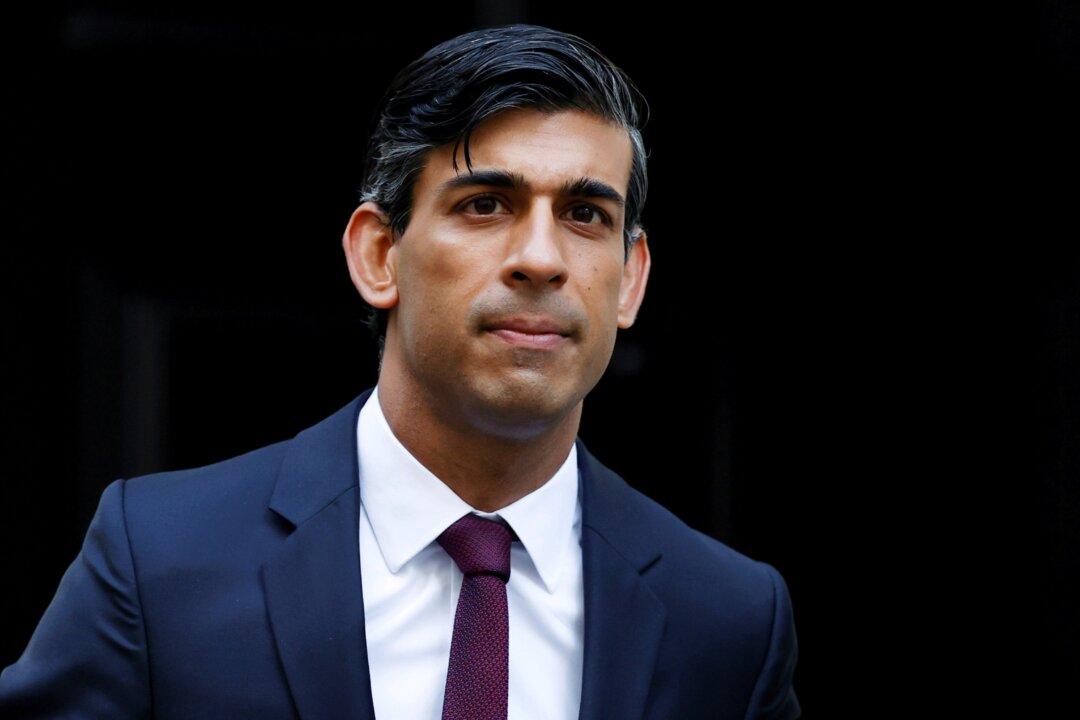LONDON—Finance minister Rishi Sunak says he won’t rush to fix the United Kingdom’s public finances as he readies a budget plan that will pile more borrowing on top of almost 300 billion pounds ($418 billion) of COVID-19 spending and tax cuts.
Sunak, who is due to deliver his budget to parliament on March 3, promised to help the UK economy through a gradual lifting of lockdown measures that will last at least until late June. But he also said he would “level with people” about how Britain’s 2.1 trillion-pound debt pile would continue to grow without action.





